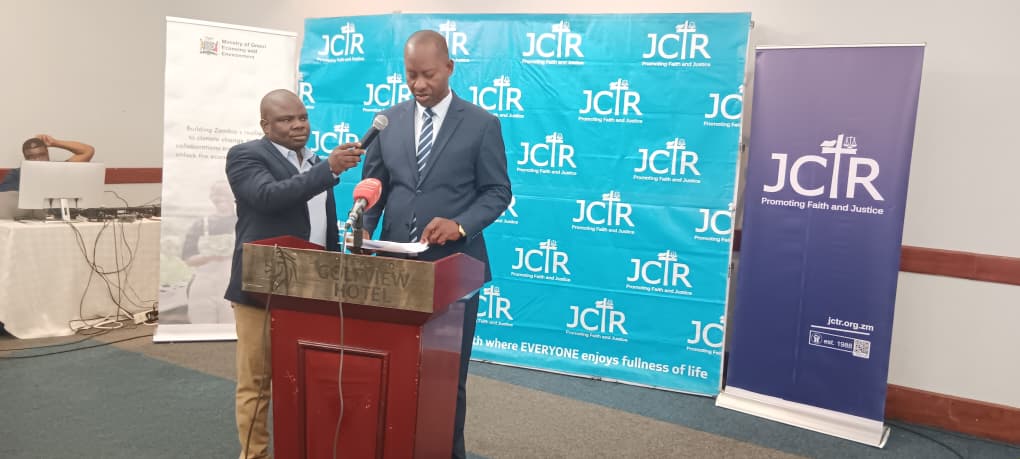
Zambia’s transition to a climate resilient state is tenable but needs the inclusion of state and non-state actors, chiefly vulnerable communities to jointly mitigate the crisis, minister responsible for the environmental protection economic buoyance says.
The 20-million populated state is grappling with eth aftermath of the 2023-24 El Nino induced drought that ravaged the economy and the environment, washing down growth capacities in agriculture and other growth sectors
To remain resilient and transition into a green economy and capable of insulating itself from the crisis, the Government has initiated deliberate policies and actions as espoused under the Climate Act of 2024.
The Government seeks collective voices to insulate and shape the lives of the future generation, using innovative solutions as it devises various strategies including Green Growth.
Green Economy and Environment minister, Mike Mposha calls for collective climate action by all campaigners to stand up and be counted in climate action, guided by science, inspired by justice and united by hope.
He dispels fears that the climate challenges faced were not insurmountable with collaboration of all players, the burden can be overcome.
Officiating at the one-day summit in Lusaka, co-organised with Jesuit Centre for Theological Reflection-(JCTR) a faith based non state actor and themed: “climate action for inclusive growth: protecting Zambia’s environment, empowering its people’’ Minister Mposha urged all players to join hands in finding solutions affecting earth, urging ‘’vulnerable communities’ to lead the fight in securing a Green, inclusive and climate resilient state.
“This partnership embodies the spirit of climate action uniting government, civil society, faith-based organisations and the wider public in a shared mission to safeguard our environment and strengthen Zambia’s resilience to climate change.” Minister Mposha said.
Unpacking the gravity of climate change that has reversed economic and environmental developmental gains in Zambia and beyond, chiefly the majority poor, Minister Mposha reminded existing and potential partners that the response towards mitigating the crisis, goes beyond the infrastructure but embraces climate justice.
The solidarity should strive to ensure that vulnerable groups especially women, youth and rural populations are empowered to adapt, lead and benefit from the Green Transition underway.
Zambia, like many developing countries overwhelmed by the adverse impact of the climate crisis, floods, droughts, among other headwinds, regrets the extreme impact undermining agriculture, energy, with the heaviest burden on vulnerable communities, women and the rural poor.
The devastations to the environment and the economy, forced the Government to seek to mitigate through various interventions as espoused under the Act, the 8th National Development Plan and the National Adaptation Plan (NAP).
These actions are being undertaken under the Paris Agreement through the revised Nationally Determined Contributions (NDCs).
And JCTR Director Daniel Mutale, stressed the call for collaboration among interest groups with a call for investment in early warning systems and climate smart practices while fronting the voices of the youth and indigenous populations’ majority vulnerable communities to advance climate action.
“We must transition to a green economy that prioritizes sustainability over short-term gain. Climate justice is not just about protecting the environment. It is about protecting people. It is about addressing inequality. It is about safeguarding the future.”
The faith-based-JCTR regrets the impact of climate change on the majority of small-holder farmers relying on rain-fed agriculture practices, victims of the pangs of floods and prolonged drought. JCTR seeks to sustain its social justice practices and restore people’s dignity.
Fr. Mutale commended the Government’s desire to insulate the country from climate change effects and that the civil society and other interest groups are willing to co-exist and complement.
